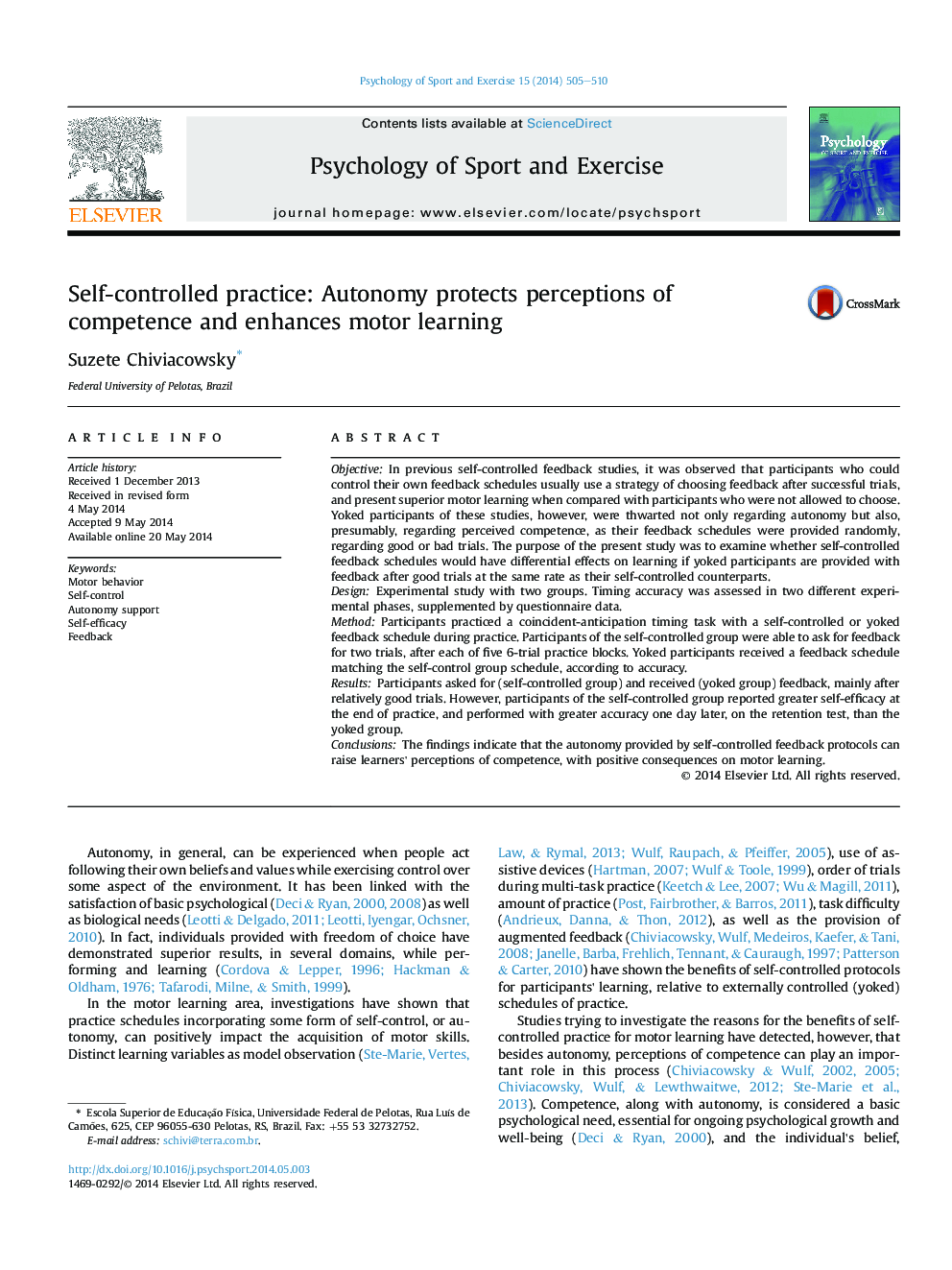| کد مقاله | کد نشریه | سال انتشار | مقاله انگلیسی | نسخه تمام متن |
|---|---|---|---|---|
| 894405 | 1472115 | 2014 | 6 صفحه PDF | دانلود رایگان |
• We investigate the effects of self-controlled feedback on motor learning in adults.
• Self and yoked groups receive feedback equally mainly after good trials.
• The self group report greater self-efficacy than the yoked group after practice.
• The self group perform with greater accuracy than the yoked group in retention.
• The results show that autonomy can impact perceived competence and motor learning.
ObjectiveIn previous self-controlled feedback studies, it was observed that participants who could control their own feedback schedules usually use a strategy of choosing feedback after successful trials, and present superior motor learning when compared with participants who were not allowed to choose. Yoked participants of these studies, however, were thwarted not only regarding autonomy but also, presumably, regarding perceived competence, as their feedback schedules were provided randomly, regarding good or bad trials. The purpose of the present study was to examine whether self-controlled feedback schedules would have differential effects on learning if yoked participants are provided with feedback after good trials at the same rate as their self-controlled counterparts.DesignExperimental study with two groups. Timing accuracy was assessed in two different experimental phases, supplemented by questionnaire data.MethodParticipants practiced a coincident-anticipation timing task with a self-controlled or yoked feedback schedule during practice. Participants of the self-controlled group were able to ask for feedback for two trials, after each of five 6-trial practice blocks. Yoked participants received a feedback schedule matching the self-control group schedule, according to accuracy.ResultsParticipants asked for (self-controlled group) and received (yoked group) feedback, mainly after relatively good trials. However, participants of the self-controlled group reported greater self-efficacy at the end of practice, and performed with greater accuracy one day later, on the retention test, than the yoked group.ConclusionsThe findings indicate that the autonomy provided by self-controlled feedback protocols can raise learners' perceptions of competence, with positive consequences on motor learning.
Journal: Psychology of Sport and Exercise - Volume 15, Issue 5, September 2014, Pages 505–510
